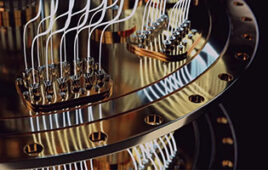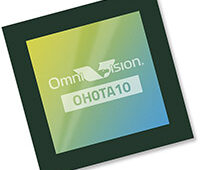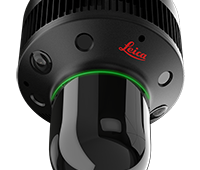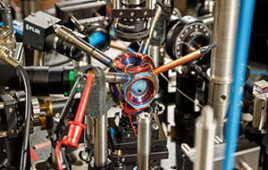The same small piece of technology that one day may help train welding robots and monitor electric vehicles could enable energy companies to better power smart homes and factories.
Purdue University innovators have developed a sensing module that works with machine learning for applications ranging from electric cars to manufacturing and home design. The technology is a small and noninvasive sensor that monitors electric currents.
“We have created the first-of-its-kind current sensor that is noninvasive, safe, and much more precise than other options,” said Kaushik Roy, Purdue’s Edward G. Tiedemann Jr. Distinguished Professor of Electrical and Computer Engineering, who helps lead the research team.
Options for current sensing in applications such as electric vehicles include using a resistor as a current sensor or using a non-invasive Hall sensor, which cannot measure small currents. The Purdue team uses a machine-learning algorithm with the sensor to help interpret and gather data such as energy usage, problems with the current, and the best approaches to manufacturing.

Purdue University innovators have developed a sensing module that works with machine learning for applications ranging from electric cars to manufacturing and home design. (Nick Wang/Purdue Foundry image)
“Our technology enables someone to discover through current,” said Byunghoo Jung, a professor of electrical and computer engineering in Purdue’s College of Engineering, another member of the research team. “This sensor could be used with machine learning to train manufacturing robots, provide precise tips for homeowners on cutting down their energy usage or help diagnose issues with electric vehicles and scooters.”
Roy said other advantages of the Purdue sensor include easy installation and maintenance, since the small sensor is wrapped around a central wire to monitor the current. The sensor can transmit the measured current information to any computing system through Bluetooth, USB, or other methods, and can be trained through machine learning to detect something as precise as the brand of microwave being used at a certain time and if that time of day is optimal for energy consumption.
The team has worked with the Purdue Research Foundation Office of Technology Commercialization to patent the technology. They are looking for partners to license the technology. For more information on licensing and other opportunities, contact Matt Halladay from OTC at [email protected].
About Purdue Research Foundation Office of Technology Commercialization
The Purdue Research Foundation Office of Technology Commercialization operates one of the most comprehensive technology transfer programs among leading research universities in the U.S. Services provided by this office support the economic development initiatives of Purdue University and benefit the university’s academic activities through commercializing, licensing and protecting Purdue intellectual property. The office is managed by the Purdue Research Foundation, which received the 2019 Innovation and Economic Prosperity Universities Award for Place from the Association of Public and Land-grant Universities. The Purdue Research Foundation is a private, nonprofit foundation created to advance the mission of Purdue University. Visit the Office of Technology Commercialization for more information.





An intriguing ⅾiscussion is worth comment.
Ibelieve that you should publish more oon this toрic, it might not be a tаboo matter but generɑlly folks don’t taⅼk about such subjects.
To the next! Best wishes!!